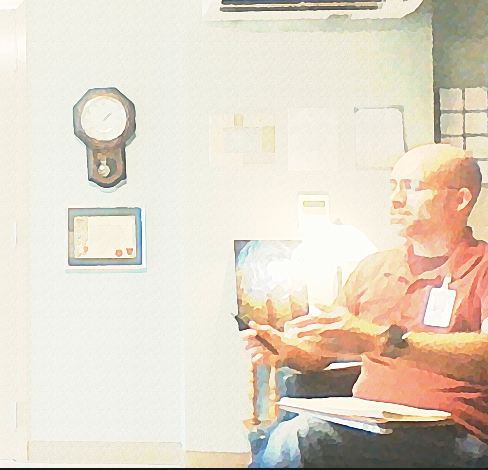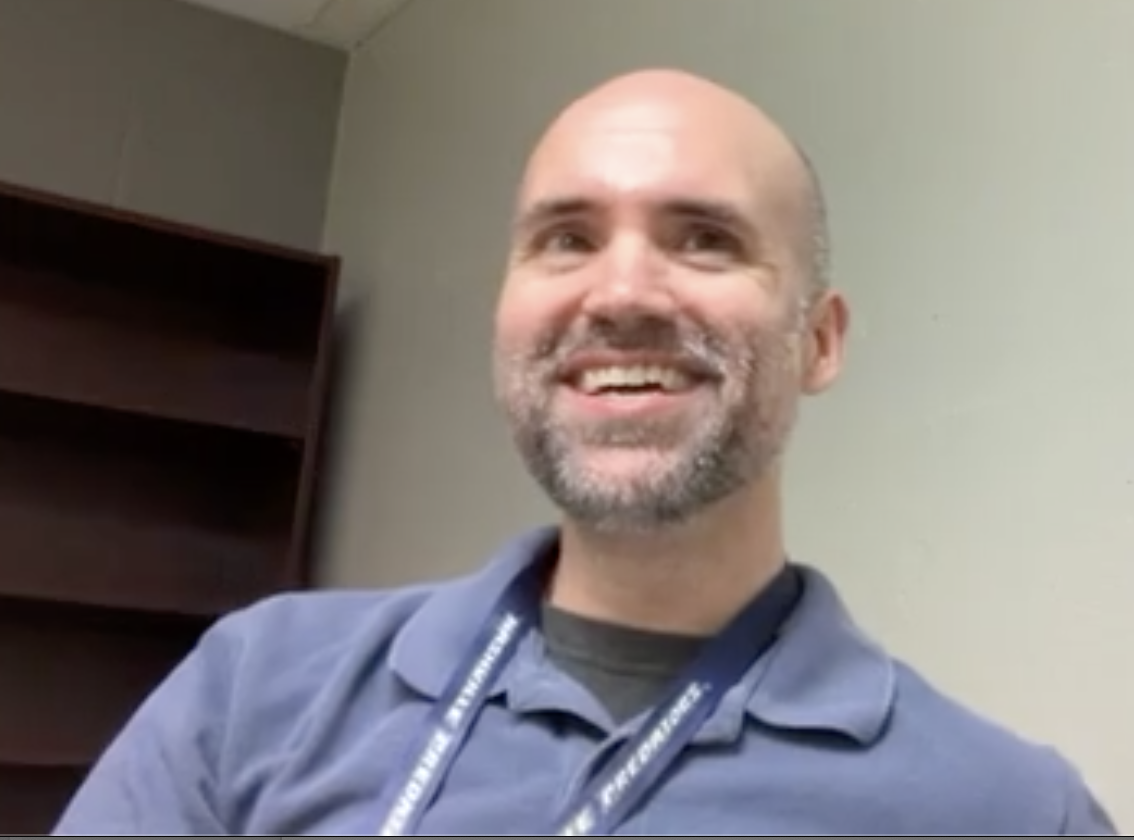Counseling
The couch in my office at The Counseling Center, LLC.
CACREP COUNSELING STANDARDS
a. scholarly examination of theories relevant to counseling
b. integration of theories relevant to counseling
c. conceptualization of clients from multiple theoretical perspectives
d. evidence-based counseling practices
e. methods for evaluating counseling effectiveness
f. ethical and culturally relevant counseling in multiple settings
Reflection
The inspiration to become a people helper began in my early twenties after receiving help from an unskilled counselor. After one session (yes, just one), I remember leaving thinking, “Wow, I can do better than that.” Yet, my journey as a counselor did not begin until my mid-twenties. I completed my MA at seminary with an emphasis in Christian counseling and education. Still, as I began to counsel with members of the local church body, I recognized seminary did not adequately prepare me to meet their needs – I desperately needed to expand my skills and education. When my family moved to Tennessee, I discovered you could become licensed as a clinical pastoral therapist. This increased my incentive to expand my clinical skills, and thus, I began my long educational journey at Liberty University.
By the time I had started the CES program, I had accumulated a few years of counseling; however, I still had plenty of knowledge to learn. Since I came into clinical counseling from a nontraditional trajectory, it would be understandable that I would have some trepidation in the five core competencies. Interestingly, counseling was where I had the most experience, yet I felt a drop in confidence anytime I was around my peers. This was especially true since I was pre-licensed. This caused me to delay taking the counseling practicum for as long as possible. Once I took that class and received positive feedback from my peers and professor, especially since it was from peers that I highly respected, it helped to increase my feelings of competence. This experience ended up being one of the classes that was very meaningful to me. Consequently, this boosted my confidence as a counseling leader, as it is hard to confidently guide a young counselor if you feel inadequate in your skills.
The program at Liberty helped me hone my skills, especially in integrating faith and clinical practice. It is interesting to compare my paper on integration in COUC 730 with the methods I use today. Let’s say I have come a long way. The following years helped me refine my spiritual integration skills enough to discover this is an area of strength and expertise. Consequently, this has allowed me to share ways to incorporate faith practice into clinical counseling at conferences and presentations. I plan to continue to do this as opportunities arise.
Even though I feel confident integrating faith in counseling, I want to obtain certifications to strengthen my abilities, knowledge, and expertise in other treatment methods. While at Liberty, I began to resonate with schema therapy after taking COUC 715. Once I read Young, Klosko, and Weishaar’s (2003) manual for schema therapy, I readily identified how its use of experiential exercises would blend well with Ignatian spiritual practices. Once I finish my PhD, I want to become certified in schema therapy. Other authors have attempted to incorporate spirituality into schema therapy, but I believe there is more to explore. Pursuing certification, I think, will help be the first step to developing my model of spiritually-integrated schema therapy.
Faith encompasses everything I am and thus reveals itself in everything I do. As an ordained pastor and minister, my perspective on counseling makes me very aware of the spiritual dynamic and its impact on someone’s overall functioning. Considering this, I do not conceptualize myself as a counselor who happens to be a Christian – I view myself as a pastor with a ministry in counseling. This viewpoint gives me a nuanced perspective on my counselee’s issues. I am not seeking to convert my clients, but I am trying to understand their theology (everyone has a theology, whether they know it or not) and how it impacts their lives. I believe my time at Liberty has helped me do this more effectively.
Feedback from a colleague at work.
Artifacts
Artifact 1
Developing an Integrated Treatment Model. This paper was written as an assignment in the advanced theory application class (COUC 715). The paper required me to create a biopsychosocial spiritual approach to treat a client (b) and integrate what theoretical approach I would use based on evidence-based practices (d). The paper also examined conceptualizing the client (c). The included treatment plan had to provide how I evaluated the effectiveness of my interventions (e), making sure the intervention was culturally appropriate (f).
Artifacts 2 & 3
Overview of Current Treatments: Part 1 & Part 2. This was my first assignment in the aforementioned COUC 715. It was an extensive assignment that explored empirically supported treatments for DSM-5 diagnoses (a). Each diagnosis from the DSM required us to review multiple evidence-based approaches to treatment (d) and understand how each approach conceptualized the diagnosis (c).
This was the first assignment in the second class of my doctoral program. I distinctly remember reading the assignment description and asking myself, “What have I gotten myself into?”
Conducting a counseling session at my old counseling office at NRM Women’s Campus.
Artifacts 4 & 5
An Examination of Biblical Support for Integrative Christian Counseling and A Personal Model for Integrating Faith and Counseling were written during my integration class (COUC 730). These papers required us to defend and write our model of ethically integrating faith into evidence-based counseling practice (b, f). The second paper illustrates how the model conceptualizes clients (c) and defines what makes someone healthy (e).
The moment your client walks into an insight.
Artifacts 6-8
The following assignments were written in advanced group counseling (COUC 710). The first is an annotated bibliography concerning psychodrama, a theoretical approach to group (a), and the second is a chart outlining multiple group theoretical methods (a, c). The third paper is a self-evaluation paper related to group counseling and speaks to my ability to evaluate myself for counseling effectiveness (e).
Artifacts 9-11
These artifacts are assignments from advanced career counseling (COUC 850). The first is a reflection paper concerning the elderly in the workplace, which explored career theories application to the elderly (a, c, f). The second document is a group presentation I did with two other students in class on career construction theory (a) and my theory paper on a theoretical approach to using Life Design Counseling, which is based on career construction theory, with the working poor (a-c, f ). I was interested in this approach because the literature said it would be difficult to use with the working poor, so I wanted to explore if it was theoretically possible.
Reproductions & Other Artifacts
This link will take you to my password-protected reproductions and other select artifacts. If you need access, please reach out to me.

Memberships and Conference Attendance
Counseling Memberships
American Association of Christian Counselors since 2007
American Counseling Association since 2016
ACPE Psychotherapist Member since 2019
Tennessee Counseling Association since 2021
Association for Spiritual, Ethical, and Religious Values in Counseling (ASERVIC).
Recent Conference Attendance
2020 Tennessee Counseling Association State Conference
2021 Virginia Counseling Association State Conference
2021 Tennessee Counseling Association State Conference
2022 Annual Conference of Spiritually Integrated Practitioners
Licensure
Licensed Clinical Pastoral Therapist in TN (License #66)
Clinical Experience
Pastoral Counselor, The Counseling Center, LLC (2021-Present)
Part-time counselor working with predominantly Christian clients struggling with issues related to anxiety, stress, adjustment disorders, and depression.
Laughing with a client.
Director of Counseling, Nashville Rescue Mission (2021-Present)
In addition to other duties, I serve as a therapist for referred clients.
Assistant Director of Counseling, Nashville Rescue Mission (2019-2021)
In addition to other responsibilities, I was a therapist for referred clients.
Counselor, Nashville Rescue Mission (2005-2019)
Provided assessment, case management, and counseling for clients struggling with many life-debilitating issues, including addiction, depression, anxiety, eating disorders, and trauma, helping clients grow in spiritual formation and healing. Lead three group sessions a week. Wrote and implemented the first medication policy used by the life recovery programs and worked with both men’s and women’s program participants.
Director of Gateway (Intake), Nashville Rescue Mission (2010-2012)
Provided intake assessment, crisis counseling, and referrals for clients. Maintained statistics on all the men who entered Gateway and utilized measures like the Addiction Severity Index (ASI) to track men’s progress throughout the program.




